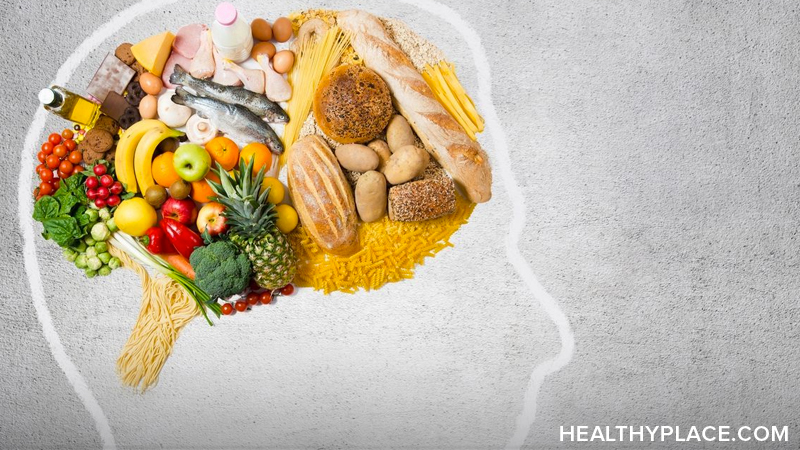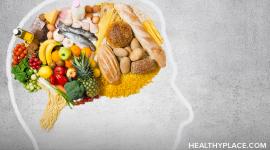Alzheimer's Disease: Dietary Supplements, Herbs, Alternative Treatments

Detailed information on alternative treatments for Alzheimer's Disease, including herbs, supplements, vitamins, more.
Nutrition and Dietary Supplements for Alzheimer's Disease
Damage caused by free radicals is thought to play a major role in the development of Alzheimer's disease (AD). Many researchers have investigated whether antioxidants (agents known to scavenge free radicals) may ease the symptoms of dementia, increase the life span of those with AD, and help prevent the disease. Two antioxidants, in particular vitamins E and C, have shown promise in both the prevention and treatment of the disease. Research on other supplements is less convincing.
Vitamin E and Vitamin C for Alzheimer's
Vitamin E dissolves in fat, readily enters the brain, and helps slow down the cell damage that occurs naturally with age. In a well-designed study involving 341 people with AD who were followed for 2 years, researchers found that people who took vitamin E supplements had an improvement in their symptoms and increased survival rates compared to those who took a placebo.
Two large trials suggest that vitamin E and vitamin C may prevent the onset of AD, improve cognitive skills in healthy individuals, and decrease the symptoms of dementia. In one of the studies, more than 600 healthy individuals were followed for an average of 4 years. A total of 91 people developed AD, but none of the participants who took vitamin E or C supplements developed the disease.
SAM-e for Alzheimer's (S-adenosylmethionine)
SAM-e is a naturally occurring compound that increases the body's levels of serotonin, melatonin, and dopamine. Clinical studies suggest that people with AD and depression have depleted levels of SAM-e in their brain tissue. While it has been reported that some people with AD have improved cognitive function from SAM-e supplementation, further studies are needed to determine how safe and effective this supplement may be for individuals with the disease.
Beta-carotene and Vitamin A for Alzheimer's
Preliminary studies suggest that levels of vitamin A and its precursor, beta-carotene, may be significantly lower in people with AD compared to healthy individuals, but the effects of supplementation have not been studied.
Vitamin B9 (Folate) and Vitamin B12 for Alzheimer's
Folate is a substance critical to the health of the nervous system and to a process that clears homocysteine from the blood. Homocysteine is a body chemical that contributes to chronic illness such as heart disease, depression, and AD. Elevated levels of homocysteine and decreased levels of both folate and vitamin B12 have been found in people with AD, but again, the benefits of supplementation for dementia are unknown.
Acetyl-L-carnitine for Alzheimer's
In addition to being structurally similar to the brain chemical acetylcholine, acetyl-L-carnitine is a scavenger of free radicals and is involved in the growth of brain cells. Several studies have examined the role of acetyl-L-carnitine in treating AD, but results have been conflicting. For example, one trial suggests that this supplement may help prevent the progression of AD in the early stages of the disease, but it may worsen symptoms in later stages of the disease. Use of this supplement for AD should be avoided, therefore, until more information is available. Reported side effects include increased appetite, body odor, and rashes.
Phosphatidylserine (PS) for Alzheimer's
Phosphatidylserine is a naturally occurring substance found in the body that promotes cell health and boosts the activity of acetylcholine and other brain chemicals. Animal and laboratory studies suggest that this supplement may protect the brain from damage. Clinical trials have found that it may improve memory, ease symptoms in those with mild to moderate dementia, and prevent cognitive decline in middle-aged individuals.
Red Wine and Grape Juice for Alzheimer's
Resveratrol, a flavonoid or plant substance found in red wine and grape juice, is an antioxidant that may benefit people with AD. Because the alcohol in red wine may contribute to falls, interactions with medications, and sleepiness, it is not recommended for those with the condition.
Herbs for Alzheimer's
Alzheimer's and Ginkgo (Ginkgo biloba)
Ginkgo biloba is widely used in Europe for treating dementia. It improves blood flow in the brain and contains flavonoids (plant substances) that act as antioxidants. Although many of the clinical trials have been scientifically flawed, the evidence that ginkgo may improve thinking, learning, and memory in people with AD has been highly promising.
Clinical studies indicate that gingko provides the following benefits for people with AD:
- Improvements in thinking, learning, and memory
- Improvements in daily living
- Improvements in social behavior
- Delayed onset of symptoms
- Reduced symptoms of depression
Recommended dosages for ginkgo range between 120 to 240 mg per day. Reported side effects have been minor, but ginkgo should not be taken with blood-thinning medications (such as warfarin), vitamin E, or a class of antidepressants called monoamine oxidase inhibitors (MAOIs).
Preliminary studies indicate that the following herbs may also slow the progression of Alzheimer's disease and improve memory and behavior:
- Asian ginseng (Panax ginseng) and American ginseng (Panax quinquefolium)
- Nicotine (Nicotiana tobaccum)
- Huperzine (Huperzia serrata)
- Snowdrop (Galanthus nivalus)
- Physostigmine (Physostigma venenosa)
Although the following herbs have not been investigated in clinical studies, a professional herbalist may recommend the following for people with AD:
- Sage (Salvia officinalis)
- Lemon balm (Melissa officinalis)
- Rosemary (Rosmarinus officinalis)
- Peony (Paeonia suffruticosa)
- Guarana (Paullinia cupana)
- Gotu kola (Centella asiatica)
Alzheimer's and Acupuncture
Small studies have shown that transcutaneous electrical nerve stimulation (TENS), a technique used in physical therapy and certain types of acupuncture, may improve memory and daily living skills in people with AD. Further studies are needed to confirm whether acupuncture may be effective in the treatment of AD.
Alzheimer's and Massage and Physical Therapy
The inability to communicate normally with language increases anxiety and frustration in people with Alzheimer's. Using touch, or massage, as a form of nonverbal communication has been shown to benefit those with AD. In one study, people with AD who received hand massages and were spoken to in a calming manner had a reduction in pulse rate and in inappropriate behavior. Healthcare professionals speculate that massage may be beneficial for people with AD not only because it is relaxing, but because it provides a form of social interaction and a moderate form of exercise.
Mind/Body Medicine for Alzheimer's
Alzheimer's and Music Therapy
Music therapy, the use of music to calm and heal an individual, cannot slow or reverse dementia, but it may improve quality of life for both a person with AD and his or her caregiver. Clinical reports suggest that music therapy may reduce wandering and restlessness and increase chemicals in the brain that enhance sleep and ease anxiety. For example, people with AD have been shown to experience significant increases in levels of melatonin, norepinephrine, and epinephrine after listening to live music regularly for a month. Mood also improved after listening to music.
Alzheimer's and Support for the Caregiver
Studies suggest that caregivers who receive emotional support tend to experience an improvement in their quality of life and those they are caring for benefit as well.
Alzheimer's and Ayurveda
The following Ayurvedic herbs are traditionally used to treat brain disorders in elderly people:
- Winter cherry (Withania somnifera)—demonstrates antioxidant and anti-inflammatory properties in the laboratory; enhances the tolerance of stress in animals
- Brahmi (Herpestis monniera)—improves motor skills as well as the ability to learn and retain information
Additional information on alternative treatments for Alzheimer's
APA Reference
Staff, H.
(2021, December 20). Alzheimer's Disease: Dietary Supplements, Herbs, Alternative Treatments, HealthyPlace. Retrieved
on 2026, March 5 from https://www.healthyplace.com/alzheimers/main/dietary-supplements-herbs-alternative-treatments



